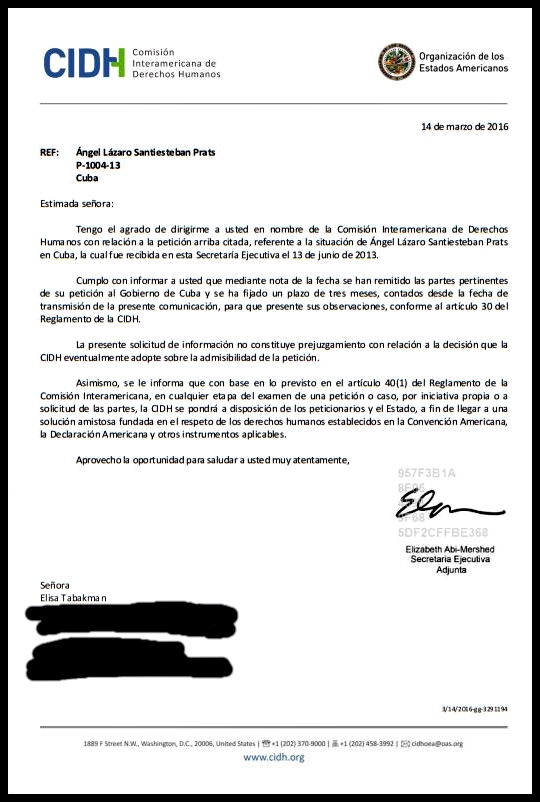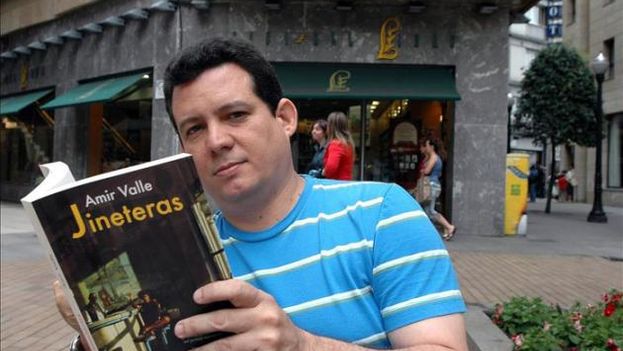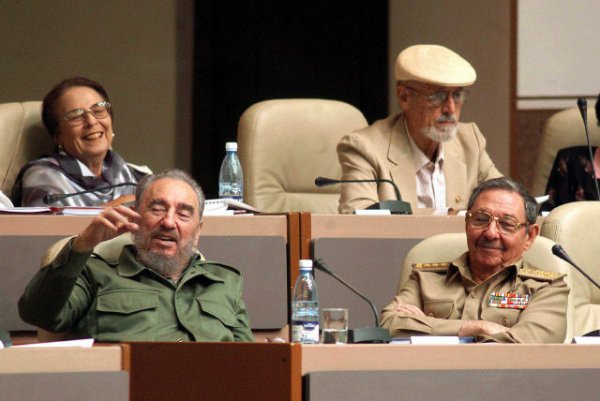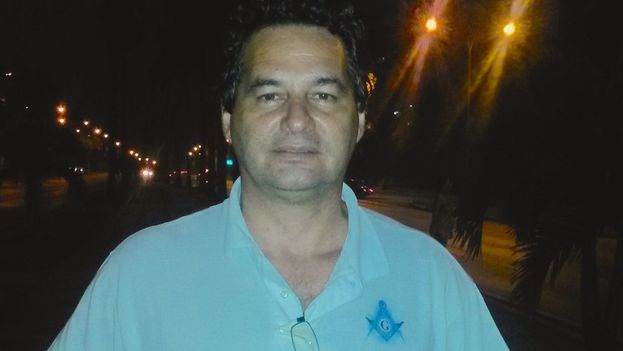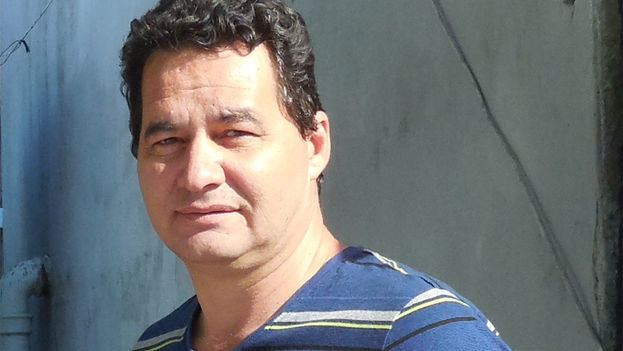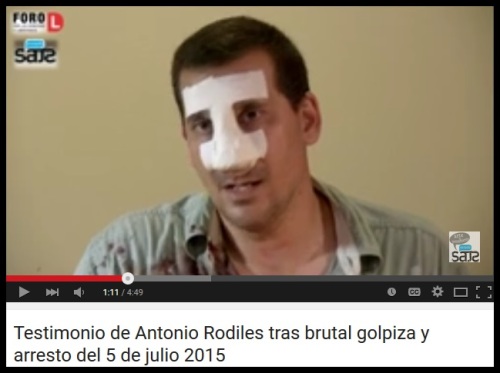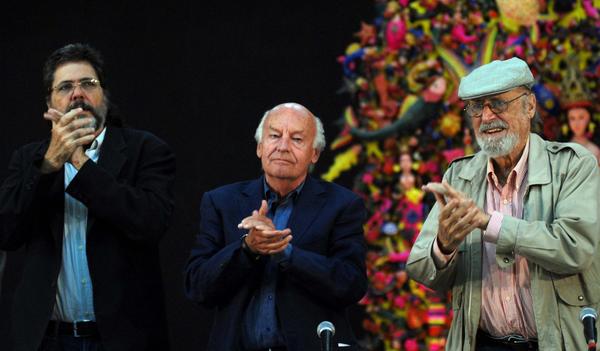
Ángel Santiesteban, 2 September 2016 — After writing what will now be considered the first part of this post, and publishing it under this same title, I was arrested by State Security; however it was not the writing, and much less the visibility that it would attain in my blog, that was the real cause for the arrest. My captors, in the height of contempt, tried to make me believe that I was a trickster, a vulgar swindler. In a flash I became, again, a dangerous offender. I confess that I even got to imagine myself in the shoes of some famous swindlers whom I met in movies, but this was not at all a game, and the cell was not a movie set.
I have dug around a great deal in their procedures up to now, and I know their falsehoods, which was why I urged them to let me know the details of my mischief. What was the cause? What would they do now to present me as a swindler? continue reading
First would be to convince me of that strange condition of con artist that even I did not recognize in myself. Time and again, fraud would be cited in their arguments, with no trace of it when the facts were compiled. Diffusion, accusation…so that the crook I was would contradict himself and ultimately see the error of his ways. Which ways?
They themselves would offer me very few details. Everything had occurred a year ago, and on the Isle of Pines–that island south of the larger one which, arbitrarily and without popular consultation, the government decided to rename the Isle of Youth. While I was shut away in a dungeon, my “interlocutors” mentioned a fraud which they were not able to explain very well, only to later refer to a packet of leaflets which, supposedly, I had given to the photographer and human rights activist Claudio Fuentes, who was also detained.
Try as the hired gun might to convince me of the “misdeed” and that I had no option other than to recognize my “crime,” I could not help but burst out laughing. The allegation was so ridiculous that I could have dignified it with many guffaws such as the one it provoked at the start, but these spurious accusations have no intention other than to ruin the lives of we Cubans who think differently, and laughter is a good thing.
I had not other option than to let them know that I was well aware of those strategies, that I was sure that they were trying to make me believe that Claudio had denounced me, and how that was a well-worn tactic–even in the movies and police novels. “I do not think the same as you. I am not a coward, nor am I your ’comrade.’ I am not a lackey.” That’s just what I said to them.
Then they laughed, but their laughter was not that of a victor, it was the nervous laughter of someone who’s about to lose. I confess that I felt frustrated; I have always dreamed of taking on an intelligent adversary, an enemy convinced of the rightness of his actions. This would be much better, but this time again it was useless to pine for such a thing, and the worst was that those gendarmes had not the slightest idea what the words “liberty” and “democracy” mean.
I was so annoyed that I started to speak of my childhood, of those days when I believed that Cuban State Security was one of the best in the world, even mentioning out loud the titles of a few novels: “Here the Sands are Whiter,” and “If I Die Tomorrow,” and “In Silence It Has Had to Be.” I mentioned the mark that those works had left on a bunch of proud adolescents who, still, believed that what which those fictional officials were defending actually existed in reality–and that we even believed, naively, that on this Island was a concerted effort to create a lasting prosperity.
The bad part, I assured them, was when I knew the whole truth, when I understood that those agents were only after ensuring the perpetual rule of the Brothers Castro. I mentioned the moment in which I crossed the line, that line that placed me, irreversibly, on the opposite side. I spoke of my discontent with a totalitarian regime, and about how I discovered the true essences of those killers in the service of the Castros: people capable of abusing women, of planting false evidence for the prosecution (after brutalizing them) of those who fight for change in Cuba. They would laugh, nervously…and with no segues they arrived at a new argument, undoubtedly the most important one, the one that caused them to shut me away.
What had truly annoyed them was a post that I had published regarding Roberto Fernández Retamar, in which I called him an assassin. According to them, I had not considered the fact that Roberto was my colleague. “I don’t have colleagues who are assassins,” I told them, and they replied that my attack had not achieved any importance, that it had already been forgotten, and that Fernández’ true comrades had made a tribute to him immediately. Then why, I asked, were they holding me there? Why were they mentioning that post? For sure, they were contradicting themselves–but I was already used to that, and once again I smiled, sardonically.
I thought of a version of Silvio Rodríguez whom I had seen on TV making tributes, in song, to Fernández, which made me suspect that it all could be a reply to my post. My detention had nothing to do with the leaflets nor with any fraud– that seizure was orchestrated after I accused Roberto Fernández Retamar of having signed a death sentence against three youths who only wanted to get out of an extremist country where they no longer wanted to live.
I had already received some news about the comments that had been incited by that post, and I also knew of the vexation that it had provoked in some writers, who judged it excessive that I should call Fernández an assassin. Again it was I who was the monster, I who committed savageries, I the irreverent and cruel barbarian–while Fernández was presented as the venerable elder, the respectable and virtuous man, the honest citizen, even after having signed a death warrant.
My detractors, the same who became his defenders while forgetting that the poet was one of the signatories of that judgment that would send three youths to the execution wall, denigrated me again, but never mentioned that the “revolutionary” poet lent a veneer of legitimacy to the death of those three young men, whose only sin was to have tried to leave a country that was tormenting them, to separate from an Island and from the dictators that have been ruling it for more than 50 years. Is that a crime?
Those who were annoyed by the post are the same who repeat the charge against me that the official discourse prepared some years ago. Those who claim that I was unjust toward Roberto Fernández Retamar did not defend my innocence when I went to jail. They saw me be taken away, they knew I was shut away in a cell, and they were silent. They never had doubts, they never confronted a power that decided to accuse of me of physically mistreating the woman who was then my companion. Those who again judge me and cast me aside are also guilty of my imprisonment.
Those who today are annoyed because I accused the president of the Casa de las Américas, did not lift a finger to request, at least, a thorough investigation of my case. They believed in the “dignity” of that woman, and today turn a deaf ear to the statements by my son. They, whom my post angered so, are the same who remain silent when “State Security” beat the Ladies in White, a “State Security” that beats women who are demonstrating peacefully. What kind of security is this? Of what State? This shows their double standard and hypocrisy. Those who signed the accusation against me today are irritated by my “attack” on the poor poet Fernández, following the orders of Abel Prieto, who at the same time was following those of the highest hierarchy of a dictatorial government.
My attackers defend only their permanence in that official union that is the UNEAC. They who seek to tarnish me want to preserve their membership in the official delegations sent to any event taking place outside the Island. They who raise their voices to attack me defend the shoes and sustenance of their children. They who attacked my liberty because, supposedly, I was beating the mother of my son, said not a word after the thrashing that State Security delivered to the actress Ana Luisa Rubio.
That woman who found herself so vulnerable, so trampled, had no choice but to leave Cuba–and what else could she do, if the UNEAC did not offer her any support nor did it organize a demonstration to confront that power that decided to batter her. No woman was to be found confronting the janissaries that bashed Rubio. In those days there was no book going around collecting the signatures of indignant UNEAC members, if any there were. Nobody went out on the street–apparently, they were amusing themselves by protecting the crumbs they get from the powers that be for their services to the “fatherland.”
Translated by: Alicia Barraqué Ellison and others

